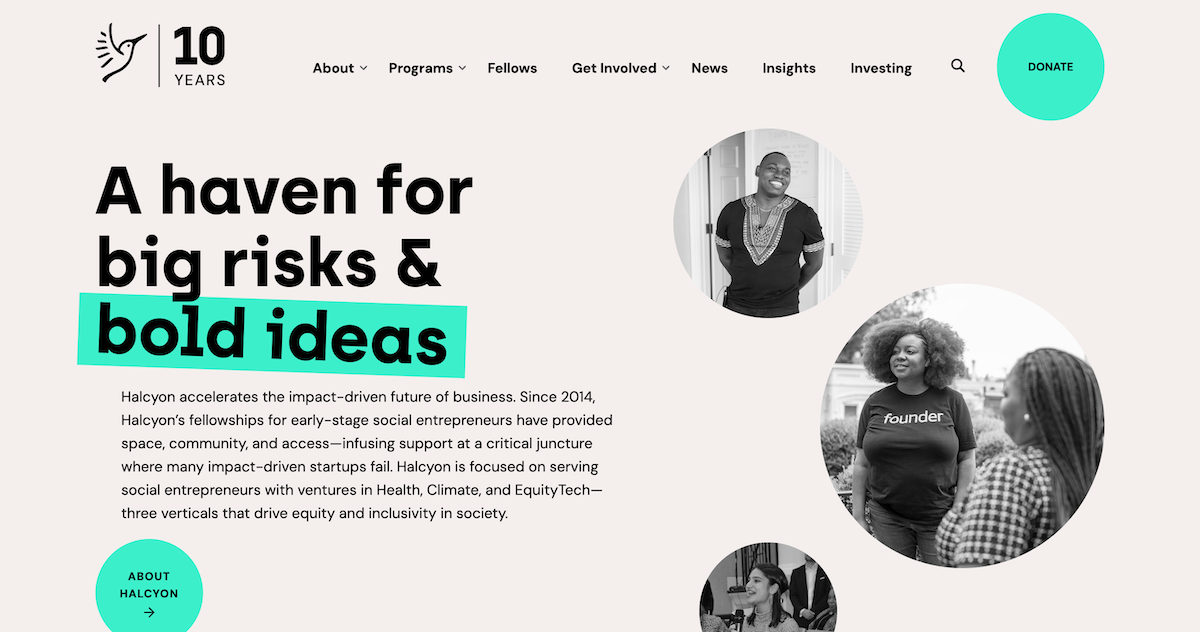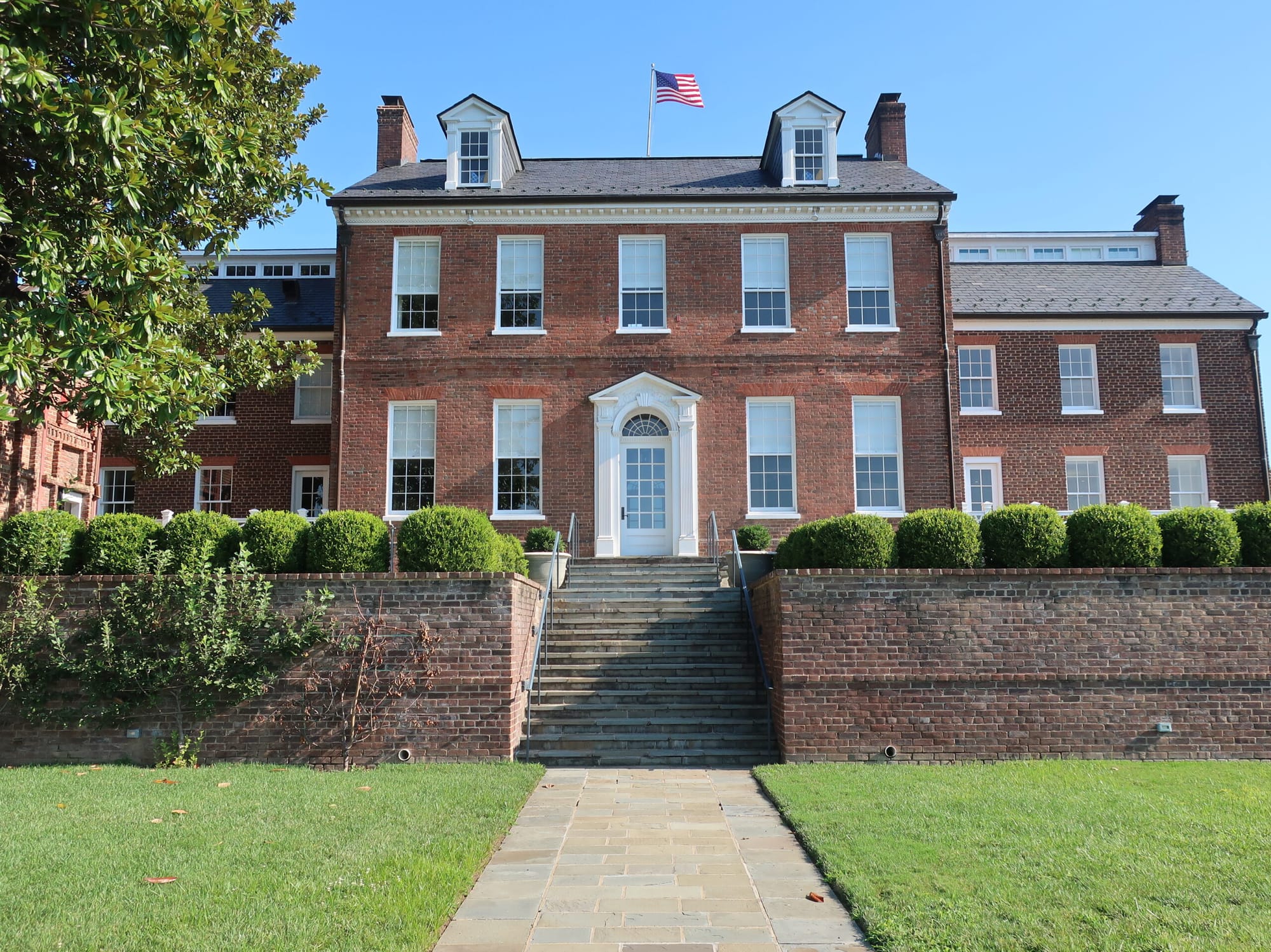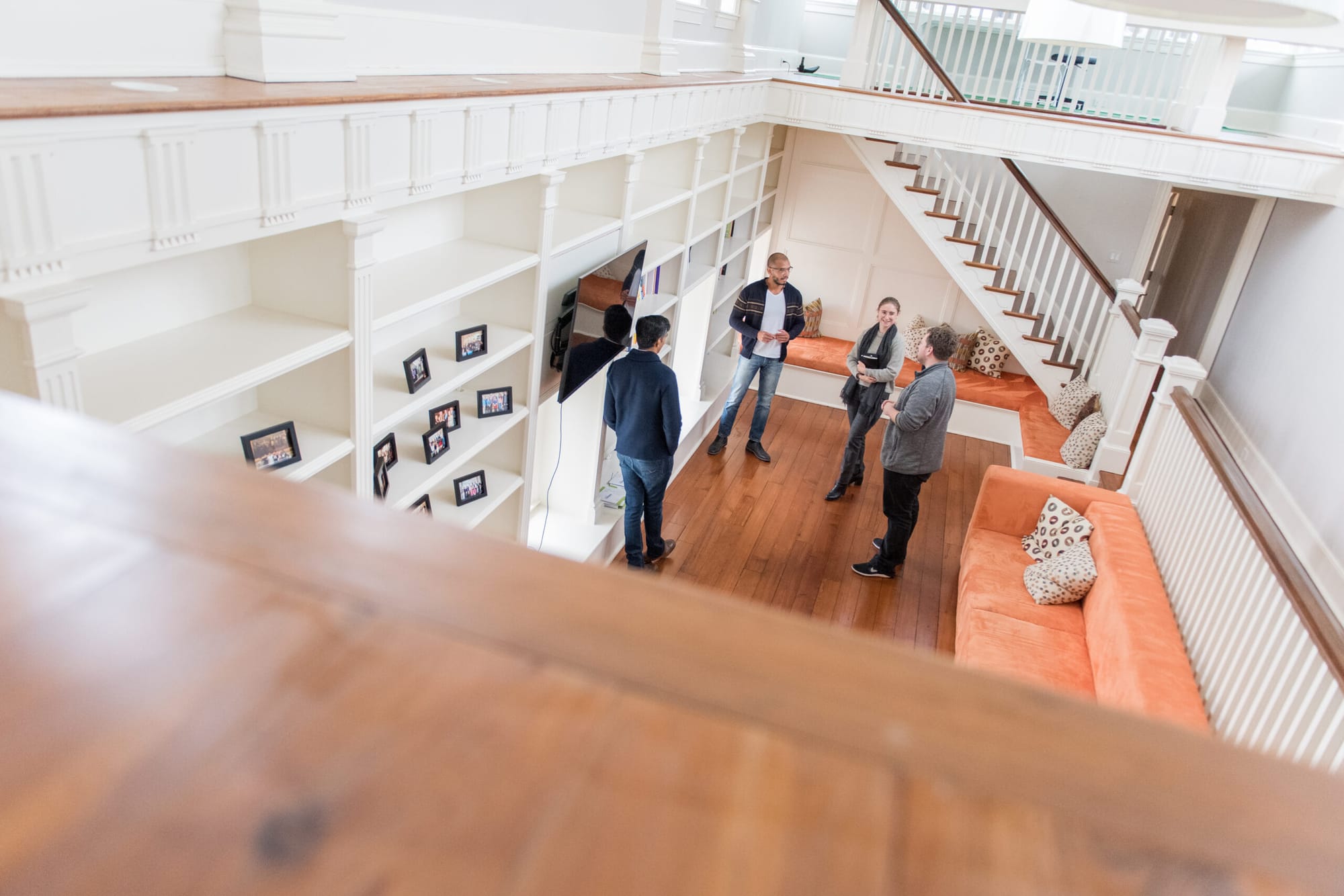In episode 81 the Investing in Impact podcast, I speak with Daniel Barker, CEO of Halcyon, an accelerator and investor in early-stage, impact-driven startups from around the globe.
Subscribe on Apple Podcasts | Spotify
In this conversation, Dan shares his journey from academia to becoming the CEO of Halcyon, an organization that accelerates impact-driven startups.
He discusses his experiences at BlackRock and MasterCard, highlighting the importance of aligning corporate missions with social impact initiatives.
Dan elaborates on Halcyon's role in supporting early-stage companies focused on climate, health, and equity tech, and the transition from incubation to acceleration in their programs.
The discussion also explores global trends in entrepreneurship, particularly the rise of young founders and the challenges they face in securing funding.
Finally, Dan shares insights on the future of funding innovations and the need for new financial instruments to support diverse entrepreneurial ventures.
Takeaways
- Corporate impact initiatives can scale effectively when aligned with core missions.
- Halcyon supports startups with impact at their core.
- The organization provides resources without taking equity.
- Cultural leadership is crucial for startup founders.
- Customer feedback is essential for early-stage companies
- Access to resources like legal support and cloud credits is invaluable for startups.
- Successful startups from Halcyon are making significant impacts in health and climate sectors.
- Global entrepreneurship is on the rise, particularly among young founders.
- There is a need for more equitable distribution of venture capital globally.
About Daniel
Dan is the President and CEO of Halcyon, an incubator and investor in early-stage, impact-driven startups worldwide. Before joining Halcyon, Dan was Vice President at the Mastercard Center for Inclusive Growth, focusing on financial inclusion and entrepreneurship, and previously led social impact initiatives at BlackRock.
He first connected with Halcyon during his time at Deloitte, where he advised on social impact strategies. Earlier in his career, Dan worked at the Council on Foreign Relations and the Earth Institute.
He holds a master’s from Columbia University and a BA from NYU, and serves on advisory boards for Global Kids, Inc. and the Guyana Economic Development Trust.
About Halcyon

Since its founding in 2014, Halcyon has provided early-stage social entrepreneurs with space, community, and resources through its fellowships.
These programs are designed to support ventures in Health, Climate, and EquityTech—three key areas that promote equity and inclusivity in society.
Focused on empowering social entrepreneurs, Halcyon offers tailored business training that includes leadership development, product-market fit strategies, investment readiness, and ongoing coaching to help founders scale their impact.
Unlike many accelerators, Halcyon does not take equity from ventures during the fellowship, ensuring support at a critical growth stage.
Recognizing funding disparities that often impact social enterprise founders, women founders, and founders of color, Halcyon has also stepped into the investing space to bridge these gaps, fostering a more inclusive entrepreneurial ecosystem.
The Halcyon House
Halcyon House, a historic 18th-century mansion nestled in the heart of Washington, D.C.'s Georgetown neighborhood, serves as the beating heart of Halcyon.
Once home to the first Secretary of the Navy, Benjamin Stoddert, this iconic building now provides a unique and inspiring workspace for Halcyon’s fellows.
With its rich history and elegant surroundings, Halcyon House fosters creativity, collaboration, and innovation.



Halcyon House
Its grand rooms, including the historic library and the modern boardroom, provide the perfect setting for Halcyon's programs, events, and community gatherings.
Whether it's a fellowship retreat, a speaker series, or a networking event, Halcyon House offers a distinctive backdrop that elevates the experience.
For Halcyon’s fellows, the mansion is more than just a workspace. It's a place to connect with like-minded individuals, seek inspiration, and grow their businesses. The serene atmosphere and stunning architecture create an ideal environment for focused work and creative thinking.
Episode Transcript
Grant Trahant (Host):
Dan, thank you so much for joining me today. You’ve had an awesome journey, working with some pretty big companies. Before we dive into your role at Halcyon, could you take us back to your days at BlackRock and MasterCard? How did your path evolve in the impact investing space and social impact within those organizations?
Dan Barker:
I actually started in academia, focused on global health and economic development. The problem I noticed was that while we had big ideas in academia, they often lacked real-world execution. That pushed me to explore the private sector and consulting. I joined Deloitte and first encountered Halcyon through a pro bono partnership, working with social entrepreneurs. Later, I transitioned into corporate social responsibility roles at BlackRock and MasterCard, where I focused on integrating impact within these massive organizations.
[03:46]
Host (Grant):
When you were at BlackRock and MasterCard, what did the approach to impact look like? Were you impressed by their contributions to the impact ecosystem, and how did they integrate social entrepreneurship within such large organizations?
Dan Barker:
BlackRock and MasterCard are different companies, but a common theme is that impact makes sense when it’s aligned with the core mission. At BlackRock, we launched the Emergency Savings Initiative, which aimed to improve financial security for many Americans. At MasterCard, financial inclusion was deeply embedded in the strategy. Ajay Banga and Mike Froman emphasized “doing well by doing good,” which meant integrating impact into business operations, not just as philanthropy. This alignment made impact scalable.
[07:25]
Host (Grant):
What ultimately led you to leave these corporate roles and join Halcyon?
Dan Barker:
It was a mix of timing and serendipity. A friend who was then working at Halcyon invited me to lunch and convinced me to leave my corporate job. I was drawn to Halcyon’s mission of working with founders who have impact embedded in their DNA from the start. It felt like coming full circle, as I’d first encountered Halcyon as a supporter a decade ago. I joined initially as managing director, then became CEO.
[13:30]
Host (Grant):
Let’s dive into Halcyon. How would you describe it to someone who’s never heard of it?
Dan Barker:
Halcyon supports, accelerates, and invests in early-stage companies with impact at the core of their business models in three critical areas: climate, health, and equity tech. Equity tech includes technologies that close gaps in social and economic inclusion. We help founders scale by providing tools and resources focused on investment readiness, product-market fit, and leadership development. We look for startups that are at the pilot or MVP stage and help them become investment-ready.
[16:06]
Host (Grant):
You mentioned a shift from incubation to acceleration. What prompted that change, and how does it affect the way you support founders?
Dan Barker:
The shift was driven by a maturing startup ecosystem. Today, entrepreneurs can get off the ground more easily thanks to greater access to information, technology, and support. We now focus on slightly later stages, primarily pre-seed and seed-stage companies. This enables us to help founders achieve product-market fit, understand different types of capital, and transition from founder to CEO.
[19:21]
Host (Grant):
What does the program structure at Halcyon look like, especially when a founder is accepted into the program?
Dan Barker:
We have two main program formats. First, our residential program brings founders to Washington, D.C., for eight weeks. They live and work together in a historic space in Georgetown, creating a strong sense of community. Founders receive training in investment readiness, product-market fit, and leadership, along with pro bono support from partners like Deloitte, Amazon Web Services, and legal firms. The second program is a hybrid model with a week in person, followed by virtual support, and then another in-person session.
[25:25]
Host (Grant):
Halcyon has supported over 500 fellows who have collectively raised over $500 million. Could you spotlight a few startups that have come through Halcyon’s programs?
Dan Barker:
Sure. Here are three that represent our impact sectors:
1. MeduProtection (Mexico) - Focused on healthcare, MeduProtection creates reusable PPE, reducing both hospital costs and medical waste. It’s an example of a solution that positively impacts both health and climate.
2. Bizu Money (Ghana) - This fintech helps women digitize savings groups, providing unbanked communities with financial services and access to capital.
3. Trestle Labs (India) - They’ve developed technology that translates handwritten language into voice for the visually impaired, allowing people to access education and job opportunities globally.
[32:40]
Host (Grant):
Globally, are you seeing any trends in entrepreneurship that have surprised you? Where are some of the most innovative founders coming from?
Dan Barker:
Yes, we’re seeing increased entrepreneurial energy worldwide, particularly in emerging markets. There’s a diffusion of talent and ideas from cities like Dar es Salaam to Buenos Aires. However, capital distribution remains imbalanced, with most venture capital still concentrated in the U.S., Europe, and China. Despite these challenges, founders in places like Africa and Latin America are building strong, resilient business models out of necessity, often with fewer resources.
[37:13]
Host (Grant):
Looking ahead, what are Halcyon’s goals for the next 3 to 5 years?
Dan Barker:
We want to deepen our networks in climate, health, and equity tech, and continue supporting early-stage founders. We’re also exploring new financial instruments that better suit impact-driven businesses. Current venture capital models may not be ideal for all startups, especially in sectors like climate, which require longer time horizons and may offer 10x returns instead of 100x. We aim to develop new frameworks for funding these businesses sustainably.
[43:40]
Host (Grant):
If you could create a new policy or product to support impact-driven businesses, what would it look like?
Dan Barker:
We need a complete rethink of the capital stack to support impact ventures at different stages. This may involve combining public and private investments or developing new instruments tailored to impact-driven models. The goal is to ensure that impactful startups can access the right capital at the right time, without being forced into models that don’t fit their business.
[44:18]
Host (Grant):
Dan, thank you so much for sharing your insights and for the work you’re doing at Halcyon. Best of luck to you and the team moving forward!
Dan Barker:
Thank you, Grant!










